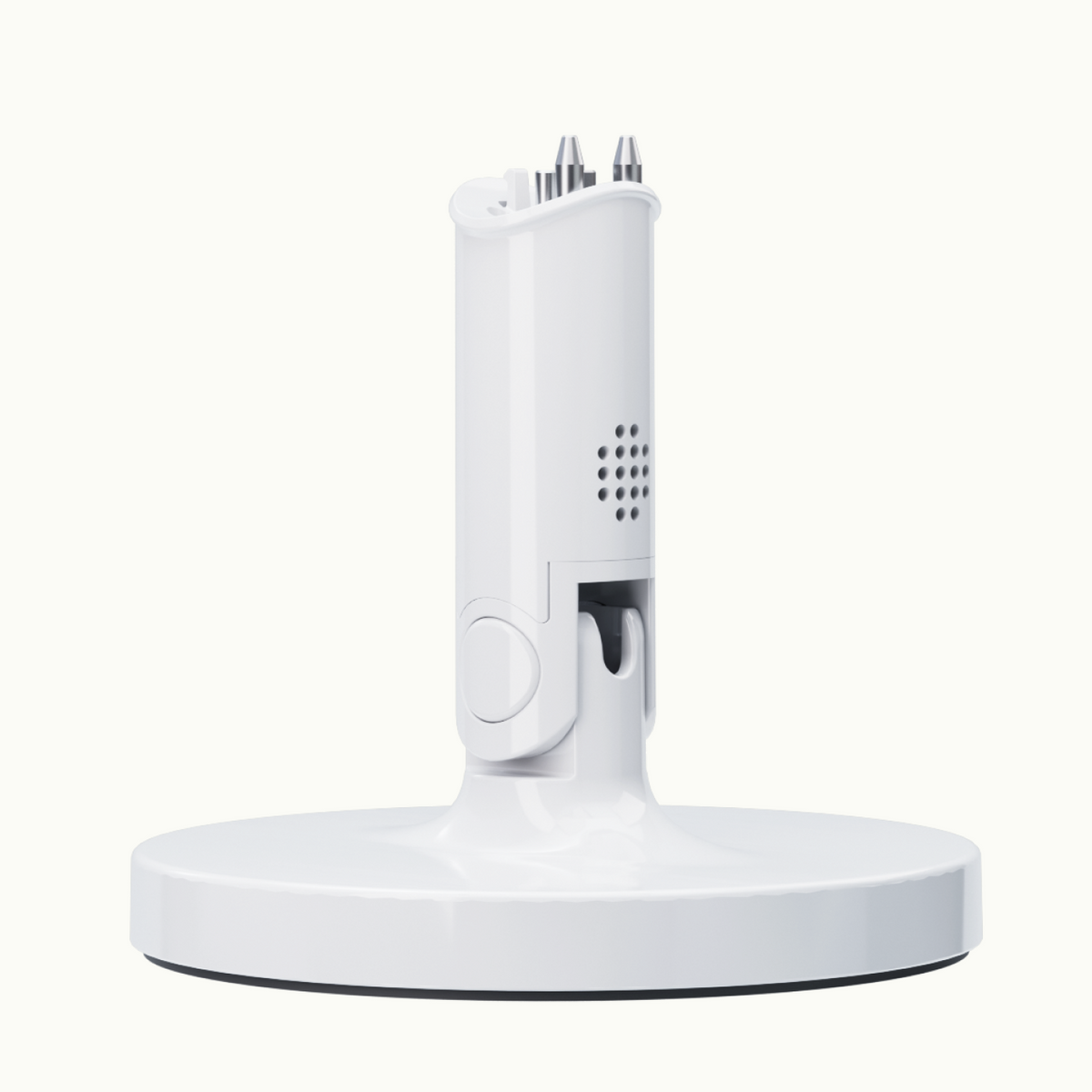After seeing that positive pregnancy test, there’s no shame in breaking out your best celebratory dance moves. You’re going to be a mom—congratulations!
But also…you’re exhausted! And sleep in general is going to be a little tricky for a while, both during pregnancy—and with a newborn. So, it’s good to prioritize rest while you can. But are there specific guidelines for sleeping during pregnancy?
First-trimester pregnancy fatigue is a real thing. That’s why we’re here to answer all of your early pregnancy sleep-related questions. Read on!
How sleep changes in the first trimester
Lately, have you felt the need for an afternoon cat nap…and a morning power snooze…and an early bedtime?
Your first-trimester body needs tons of sleep right now and there’s good reason!
There’s so much happening inside your body during these first three months. After all, you’re growing a human from scratch. In just 12 weeks, what begins as a tiny ball of cells forms into a baby the size of a plum—that’s no small feat. So, with so many changes going on, you’re bound to feel unusually tired.
What exactly is causing these bouts of exhaustion? Below, we dive deeper into the usual culprit: hormonal changes.
Human Chorionic Gonadotropin
Human Chorio-what? Sit tight: You might be more familiar with the pregnancy hormone called Human Chorionic Gonadotropin than you think. If you’ve been actively trying to conceive, you’ve probably seen its more popular acronym ‘hCG’ on pregnancy blogs and forums.
When you become pregnant, your body begins producing hCG at a rapid rate to stimulate the production of more progesterone, another hormone your body needs to maintain a healthy pregnancy. While hCG alone doesn’t usually cause feelings of fatigue, the hormone it helps to produce—progesterone—does.
Progesterone
During the follicular phase of your menstrual cycle (the two-ish weeks before ovulation), your progesterone levels remain low. However, about a week after ovulation, these levels increase dramatically, as they prepare the uterine lining for pregnancy. Once that tiny ball of cells implants in your uterus, you’ll begin producing hCG, alerting your body to produce more progesterone.
With a rapid onset of hCG and progesterone, it becomes common for your emotions to feel a little, well, off. One minute you’re laughing, the next moment you’re crying. This constant roller coaster of emotions due to hormonal changes can wear down your mental state, leading to more exhaustion.
Progesterone continues to increase throughout your pregnancy to prevent miscarriage and support your baby’s continued growth. Animal studies have linked progesterone with the ability to create sedating effects, which in other words, can cause feelings of sleepiness. So, with such a rapid increase of progesterone in your first trimester, your body begins to feel its effects in the form of fatigue.
Physiological changes in your body
Look in the mirror during the first few months of your pregnancy, and you may not notice many obvious changes. Rest assured, your body is undergoing significant transformations internally, which could be contributing to your frequent feelings of fatigue. When you’re pregnant, your blood volume doubles its supply to support the developing placenta and your baby’s circulation. This causes your heart to pump harder to maintain stable blood pressure, which can also contribute to your feeling tired more often.
How to get more sleep in the first trimester
And if all the hormone changes aren’t enough, there are other things going on that could be making you tired. Here are some additional sleep challenges you may be facing—and tips on how to deal with them.
- Nausea. The term ‘morning sickness’ can be misleading, since some pregnant women experience nausea throughout the day. To ease the queasiness, eat smaller meals more frequently and remove any foods from your diet that you find particularly nauseating. Aromatherapy can help calm nausea too. Before bed, add a few drops of lemon or peppermint essential oils to a bath or a diffuser.
- Heartburn. Progesterone is responsible for many of your least favorite pregnancy symptoms—heartburn included. So, if you feel any of its common symptoms, such as burning in your chest or throat when you lie down, avoid certain foods and drinks, such as spicy, fatty, and greasy foods, citrus, and carbonated beverages. You can also elevate your head with an extra pillow or two at night.
- Increased urination. As your uterus expands, it begins to push on your bladder, contributing to more frequent trips to the loo. To manage the number of middle-of-the-night bathroom visits, use the restroom right before bed, and cut back on fluid intake before you go to sleep.
Additional tips for managing stress
As you prepare to welcome your precious little bundle of joy, it's normal to feel overwhelmed. But the anxiety you may be feeling can also disrupt your sleep.
To help minimize additional stress—and any resulting sleep deprivation—you can also try the following:
- Meditating. Meditation allows you to practice mindfulness and breathing exercises, which can help relax your mind and body. When done consistently, meditation can reduce feelings of stress, depression, and anxiety and help you feel more peaceful.
- Journaling your thoughts. Try writing in a journal before bed or when you first wake up. Describe any emotions you’ve been feeling and what might be causing them. Writing everything down gives your mind the chance to reflect and helps you leave negative thoughts behind. For an extra boost of positivity, include a gratitude list at the start or end of each journal entry. Keep it simple by listing three things you’re thankful for each day.
- Communicating with your partner or family. Your family, friends, and partner are your biggest supporters—especially now! Lean on them when you’re feeling uncertain or overwhelmed. Sharing your feelings can strengthen these relationships and help to relieve worries.
- Looking for the positive. Recent studies report that self-affirmation can help you maintain a positive view, even when negative thoughts threaten to throw your state of mind off kilter. Try leaving notes around the house with positive reminders, such as “My baby is safe and loved,” and “I am in charge of how I live each day.”
- Seeking professional support. If you're still feeling a lot of stress and anxiety, reach out to your OBGYN or primary care physician. Your healthcare providers can suggest additional techniques for managing the emotional challenges of pregnancy in a safe, supportive environment.
First-trimester sleep positions and safety
During your first trimester, you don’t need to make too many big concessions in the sleep department. If you enjoy sleeping on your tummy, soak it up while your belly allows it. Prefer lying on your back like a starfish? Go for it. Side sleeper? Absolutely.
It’s not until the second trimester that you may need to adjust your sleep positions for comfort and safety. As your pregnancy progresses, it becomes important to determine how to sleep during pregnancy in the second trimester and later, how to sleep during pregnancy in the third trimester, to keep you and your baby safe and comfortable.
Prepare for baby with Nanit
We can’t promise that sleep will come any easier as you progress through your pregnancy. But we can say with confidence that, once your baby is here, you’ll sleep better knowing that they’re snoozing safe and sound.
At Nanit, we believe that baby monitors are more than just cameras. They’re a gateway to keeping you informed and connected to your little one. Our Pro Camera allows you to monitor your baby from anywhere, delivering sound and motion alerts directly to the app on your phone. When paired with our Breathing Wear, you can even track your baby’s breathing motions, reassuring you that they’re safe and secure as they sleep.
Join the 71% of Nanit parents who reported feeling less anxious after using the Nanit Pro Camera, and explore our other many tools to help you get the most out of every moment with your new baby.
Key takeaways
- Prioritize rest. With the onset of first-trimester fatigue, it's crucial to prioritize rest whenever possible, allowing your body the opportunity to adjust to all the big changes going on.
- Address common sleep challenges. Issues like nausea, heartburn, and frequent urination can disrupt sleep patterns. Soothe those symptoms (and sleep better) by adjusting your diet and staying hydrated.
- Manage stress. Practices like meditation, journaling, and open communication with loved ones can help alleviate stress and promote better sleep quality during pregnancy.
Sources:
NHS. Week 12. https://www.nhs.uk/start-for-life/pregnancy/week-by-week-guide-to-pregnancy/1st-trimester/week-12
NIH. Human Chorionic Gonadotropin. https://www.ncbi.nlm.nih.gov/books/NBK532950/
NIH. PROMISE: first-trimester progesterone therapy in women with a history of unexplained recurrent miscarriages – a randomised, double-blind, placebo-controlled, international multicentre trial and economic evaluation. https://www.ncbi.nlm.nih.gov/books/NBK362730/
John Hopkins Medicine. First Trimester Fatigue. https://www.hopkinsmedicine.org/health/conditions-and-diseases/first-trimester-fatigue
NIH. Insomnia during pregnancy: Diagnosis and Rational Interventions. https://www.ncbi.nlm.nih.gov/pmc/articles/PMC5017073/
NIH. Progesterone, reproduction, and psychiatric illness. https://www.ncbi.nlm.nih.gov/pmc/articles/PMC8011861/
John Hopkins Medicine. First Trimester Fatigue. https://www.hopkinsmedicine.org/health/conditions-and-diseases/first-trimester-fatigue
NIH. Effect of mindfulness meditation on depression during pregnancy: A meta-analysis. https://www.ncbi.nlm.nih.gov/pmc/articles/PMC9515986/
NIH. Self-affirmation activates brain systems associated with self-related processing and reward and is reinforced by future orientation. https://www.ncbi.nlm.nih.gov/pmc/articles/PMC4814782/


